May 21, 2024 | 03:10 GMT +7
May 21, 2024 | 03:10 GMT +7
Hotline: 0913.378.918
May 21, 2024 | 03:10 GMT +7
Hotline: 0913.378.918
On January 19, Deputy Minister Phung Duc Tien of MARD attends a Veterinary Division session to finalize the 2022 implementation plan.
According to the Department of Animal Health, the risk of dangerous epidemics spreading among livestock between Tet and the start of 2022 is extremely high.
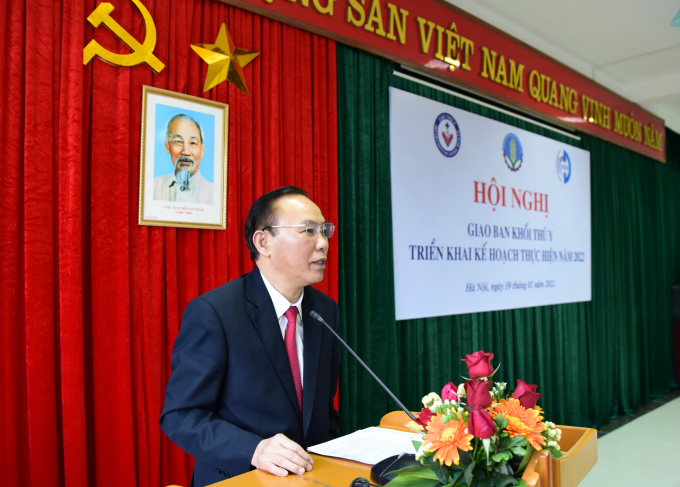
Deputy Minister of Agriculture and Rural Development Phung Duc Tien chaired the conference. Photo: Minh Phuc.
The reason for this is that the overall number of cattle and poultry herds is expected to continue growing in the final months of the year, particularly around the Lunar New Year, while small-scale livestock production continues to dominate; the percentage of vaccinated cattle and poultry remains low.
Mr. Nguyen Van Long, deputy director of the Department of Animal Health, said that infections travel rapidly and widely, while others persist in the environment for an extended period of time without treatment or vaccine, such as African Swine Fever or Lumpy Skin Disease.
Unfavorable weather, seasonal fluctuations, wet and rainy weather... all contribute to the development and spread of infections.
On seafood, extensive farming practices, traditional and uncontrolled farming continue to be popular; aquaculture infrastructure has not been synchronized and does not meet the requirements for safe production; quarantine of aquatic breeds produced in the province has been lax in some areas. Numerous harmful infections circulate in aquaculture environments; environmental variables such as temperature, salinity, and rapidly changing pH all have an effect on aquatic animal health, disease susceptibility, and ideal circumstances for pathogen development and transmission.
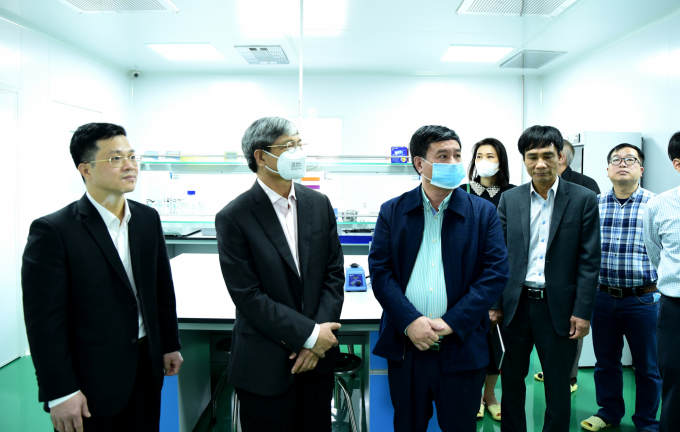
Leaders of the Department of Animal Health and delegates inspect the completion of the biosafety level III laboratory of the Central Veterinary Drug Control Center I in Soc Son district on January 19. Photo: Minh Phuc.
Mr. Nguyen Van Long said that in the coming time, the agency would closely monitor epidemic situations in areas, particularly those involving severe illnesses such as bird flu, foot-and-mouth disease, ASF, and blue ear, LSD, and rabies, among others. Simultaneously, it will continue to promote scientific research and domestic production of critical vaccines in order to achieve self-sufficiency in vaccine sources...
Mr. Ngo Van Bac, director of the Central Veterinary Diagnostic Center, shared that in addition to animal health diagnostics, the center's mission includes culturing, isolating, and sequencing genes for dangerous viruses such as avian influenza H5N1, H5N6, and H5N8 in order to track the virus's evolution, make forecasts, and advise on epidemic response strategies at the highest level. Simultaneously, operating as a testing and evaluation facility for vaccination compatibility with circulating viral strains.
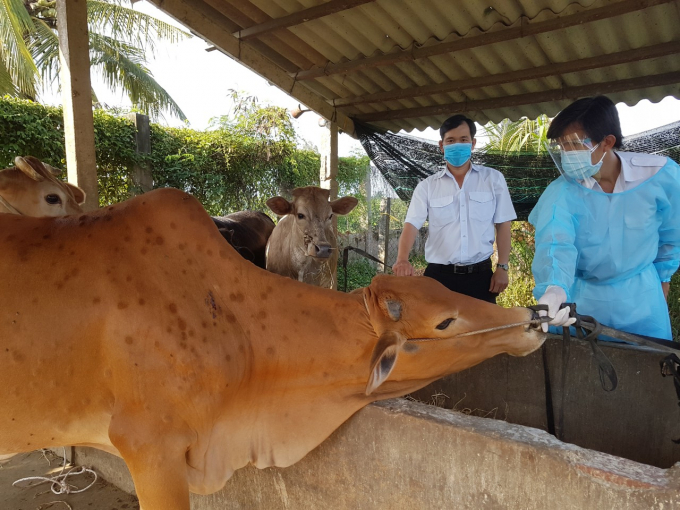
The breakdown of the veterinary system in the past time has caused many difficulties in the prevention and control of livestock and poultry diseases. Photo: NNVN.
Additionally, the center will monitor worldwide information and scientific news on dangerous illnesses circulating across the globe and in Vietnam, such as H5N7, cholera on small animals, mad cow disease, and certain diseases yet to be found on shrimp in Vietnam. "We will prepare the necessary means and techniques to quickly identify and test for indications, enabling us to take appropriate reaction steps," Bac added.
According to Mr. Ta Hoang Long, director of the Central Venetary Medicine Control Center I, the center will open the biosafety level III laboratory in March 2022 if all requirements are met, assisting the Center in evaluating vaccines against dangerous diseases such as bird flu, foot-and-mouth disease, and rabies.
Simultaneously, enhancing molecular biological analysis in order to contribute to the conservation of novel harmful bacteria in animals, consequently enabling research and vaccine manufacturing units.
Mr. Ta Hoang Long said that the facility has finished testing for ASF vaccinations manufactured by Navetco and Avac Vietnam.
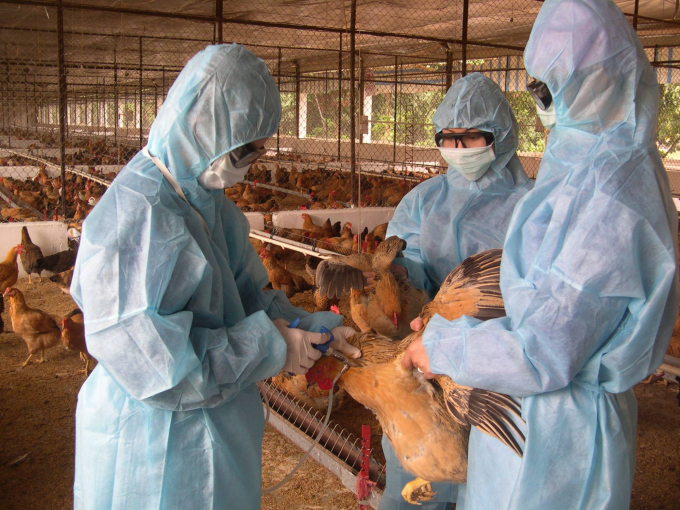
The veterinary industry has recently made great efforts in the research and production of vaccines against livestock and poultry diseases. Photo: NNVN.
Concerning avian influenza vaccines, the center is currently evaluating vaccines against H5N6 and H5N8, has completed testing of H5N8 vaccines, and the Council met and evaluated the positive results on chickens so that a vaccine capable of preventing disease is available in the near future if a strain of H5N8 virus appears and spreads.
The Center has finished testing and is presently compiling the testing dossier for Avac Vietnam's VDNC vaccine, which it will submit to the Council in the near future. Concerning the Navetco Company's study of the VDNC vaccine, the Central Veterinary Drug Testing Center I is conducting the experiment, which is slated to conclude in April 2022.
Mr. Pham Van Dong, head of the Department of Animal Health, emphasized that the animal health industry would face significant challenges in 2021. Deputy Minister Phung Duc Tien has issued extremely strict directives to the sector, particularly on the task of system strengthening.
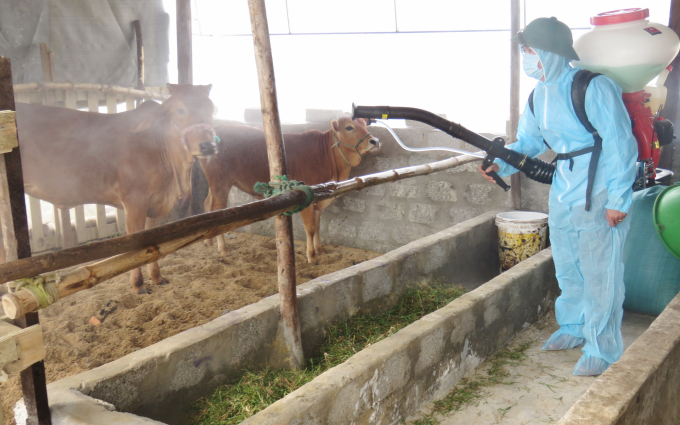
Up to now, many localities have consolidated the veterinary system. Photo: NNVN.
As a result, numerous Politburo, Secretariat, National Assembly Party Committee, and most recently, Prime Minister's Project 414 have recommended to ministries, branches, and localities maintaining and consolidating the Department of Animal Health system at the central, provincial, and district levels. Numerous provinces and towns have recently separated the veterinary system from the agriculture service center to avoid disruptions.
In concluding the conference, Deputy Minister of MARD Phung Duc Tien emphasized that while the Prime Minister's Decision 414 approving the Scheme to strengthen the capacity of the system of specialized veterinary management agencies at all levels for the period 2021 - 2030 is critical, if Decision 414 remains a document, it will not be implemented nationwide.
"As a result, when I visit provinces, I always discuss legal documents and Party policies, emphasizing that without Prime Minister's Decision 414, there would be no veterinary system, epidemiology, disease prevention, food safety, trade promotion, or export of livestock and aquatic products, and the Vietnam Academy of Agriculture would be unable to train 600-1,000 veterinary doctors each year," Deputy Minister Phung Duc Tien explained.
In 2022, Deputy Minister Phung Duc Tien urged the whole veterinary sector to continue proactively and aggressively adopting solutions to prevent and manage animal illnesses, as well as developing precise strategies for each task to safeguard the animals' health. The cattle and aquaculture industries' outcomes. Simultaneously, continue to assist enterprises in establishing disease-free facilities, promoting commerce, and expanding export markets for animal products, among others.
Translated by Linh Linh
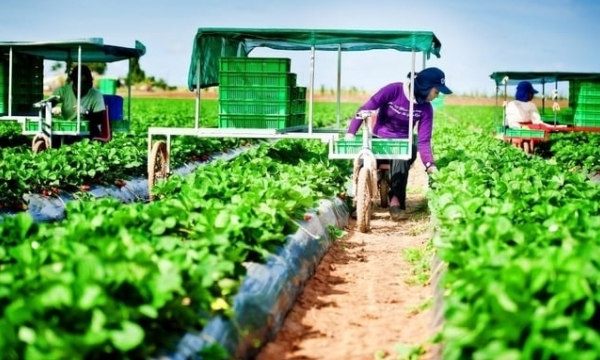
(VAN) According to the Ministry of Labor, Invalids, and Social Affairs, there has been a rise in fraudulent activities involving agricultural employment opportunities in Australia.
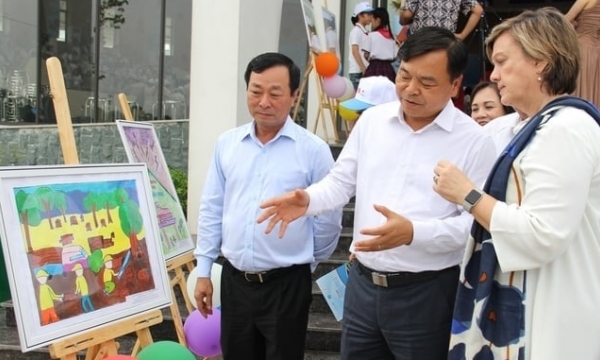
(VAN) According to Deputy Minister Nguyen Hoang Hiep, anticipatory action is a new approach in disaster management, with the aim of enhancing disaster prevention and preparedness.
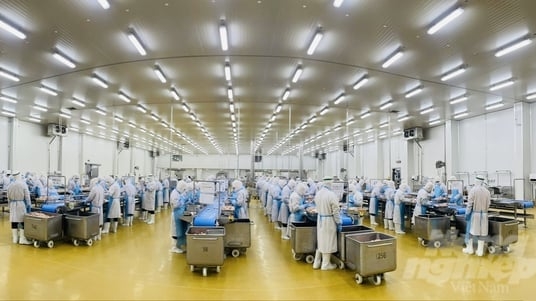
(VAN) The Ministry of Agriculture and Rural Development, in coordination with Tay Ninh Provincial People's Committee, organized a conference on May 18 to promote the export of animals and animal products.
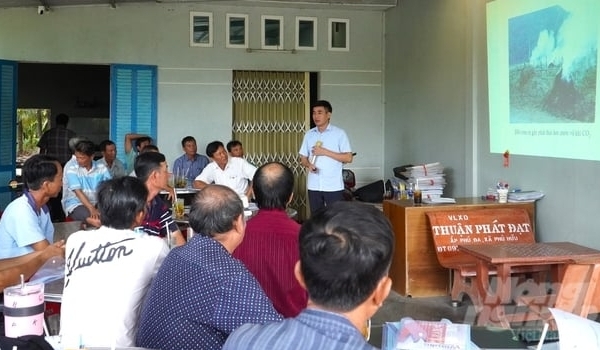
(VAN) From May 17-23, the National Agricultural Extension Center (NAEC) conducts training classes on the advanced rice farming process at 5 localities piloting for the 1 million ha of high-quality rice scheme.
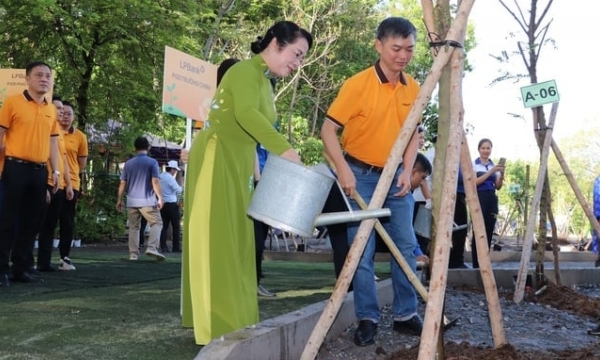
(VAN) Planting and expanding green spaces is a crucial effort to mitigate and adapt to the impacts of climate change, thereby creating a clean and livable environment.
/2024/05/17/5720-1-134847_782.jpg)
(VAN) EcoTraceTech - System for measuring CO2 and CH4 emissions from rice plants is the startup idea of a group of Can Tho University students.
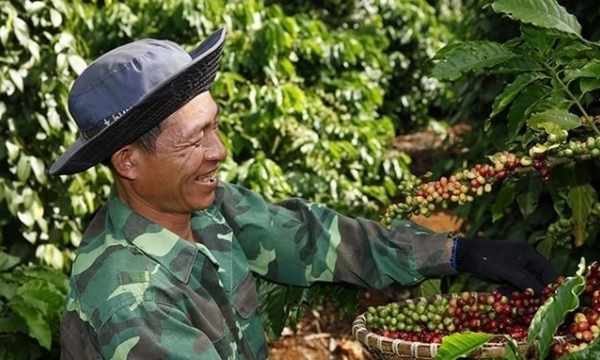
(VAN) The NESCAFÉ Plan by Nestlé Vietnam in the Central Highlands together with MARD aims to support coffee farmers in regenerative agriculture.